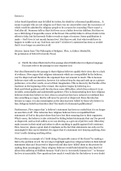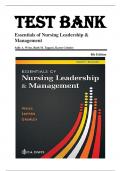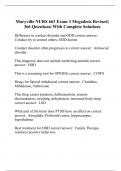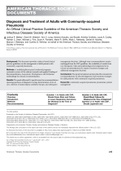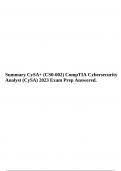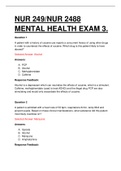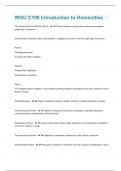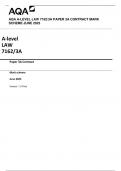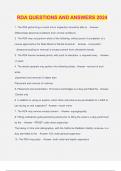Essay
A level Religious Studies Edexcel Essay: Extract 2: Flew and Hare- 10 and 20 marker
- Module
- Unit 4 - Religious language
- Institution
- PEARSON (PEARSON)
Questions on extract 2 where Hare and Flew discuss the use of religious language 10/10 achieved 20/20 achieved
[Show more]
